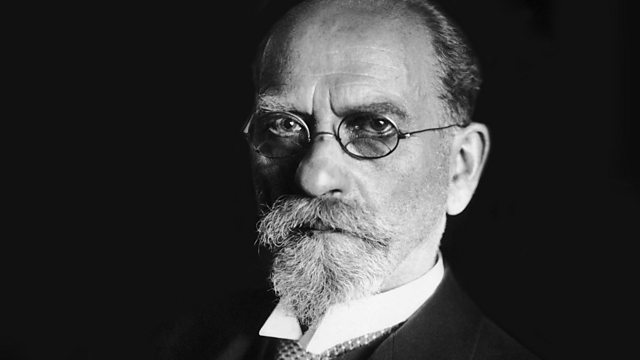Phenomenology
Melvyn Bragg and guests discuss the philosophical movement phenomenology.
Melvyn Bragg and guests discuss phenomenology, a style of philosophy developed by the German thinker Edmund Husserl in the first decades of the 20th century. Husserl's initial insights underwent a radical transformation in the work of his student Martin Heidegger, and played a key role in the development of French philosophy at the hands of writers like Emmanuel Levinas, Jean-Paul Sartre, Simone de Beauvoir and Maurice Merleau-Ponty.
Phenomenology has been a remarkably adaptable approach to philosophy. It has given its proponents a platform to expose and critique the basic assumptions of past philosophy, and to talk about everything from the foundations of geometry to the difference between fear and anxiety. It has also been instrumental in getting philosophy out of the seminar room and making it relevant to the lives people actually lead.
GUESTS
Simon Glendinning, Professor of European Philosophy in the European Institute at the London School of Economics
Joanna Hodge, Professor of Philosophy at Manchester Metropolitan University
Stephen Mulhall, Professor of Philosophy and Tutor at New College at the University of Oxford
Producer: Luke Mulhall.
Last on
More episodes
Next
LINKS AND FURTHER READING
Reading List:
Jacques Derrida (trans. Marian Hobson), The Problem of Genesis in Husserl's Phenomenology (University of Chicago Press, 2003; first published 1954)聽
Penelope Deutscher, A Politics of Impossible Difference: The Later Work of Luce Irigaray (Cornell University Press, 2002)
Rosalyn Diprose, The Bodies of Women: Ethics, Embodiment and Sexual Difference (Routledge, 1994)
Sebastian Gardner, Sartre鈥檚 Being and Nothingness: A Reader鈥檚 Guide (Continuum, 2009)
Simon Glendinning, In the Name of Phenomenology (Routledge, 2007)
Sara Heinamaa, Toward a Phenomenology of Sexual Difference: Husserl, Merleau-Ponty, Beauvoir (Rowman and Littlefield, 2003)
Edmund Husserl (trans. L. Hardy), The Idea of Phenomenology (Springer, 1999; first published 1907)
Gregory McCulloch, Using Sartre: An Analytical Introduction to Early Sartrean Themes (Routledge, 1994)
Dermot Moran, Introduction to Phenomenology (Routledge, 1999)
Dermot Moran, Edmund Husserl: Founder of Phenomenology (Polity Press, 2005)
Michael L. Morgan, Discovering Levinas (Cambridge University Press, 2008)
Katherine Morris, Starting with Merleau-Ponty (Continuum, 2012)
Stephen Mulhall, Routledge Philosophy Guidebook to Heidegger and Being and Time (Routledge, 2005)
Daniel Thomas Primozic, On Merleau-Ponty (Cengage Learning, 2000)
A.D. Smith, Routledge Philosophy GuideBook to Husserl and the Cartesian Meditations (Routledge, 2003)
Donn Welton, The Other Husserl: The Horizons of Transcendental Phenomenology (Indiana University Press, 2002)
Dan Zahavi, Husserl鈥檚 Phenomenology (Stanford University Press, 2003)
Useful Websites:
Credits
| Role | Contributor |
|---|---|
| Presenter | Melvyn Bragg |
| Interviewed Guest | Simon Glendinning |
| Interviewed Guest | Joanna Hodge |
| Interviewed Guest | Stephen Mulhall |
| Producer | Luke Mulhall |
Broadcasts
- Thu 22 Jan 2015 09:00大象传媒 Radio 4
- Thu 22 Jan 2015 21:30大象传媒 Radio 4
Featured in...
![]()
20th Century—In Our Time
Browse the 20th Century era within the In Our Time archive.
![]()
Philosophy—In Our Time
From Altruism to Wittgenstein, philosophers, theories and key themes.
In Our Time podcasts
Download programmes from the huge In Our Time archive.
The In Our Time Listeners' Top 10
If you鈥檙e new to In Our Time, this is a good place to start.
Arts and Ideas podcast
Download the best of Radio 3's Free Thinking programme.
Podcast
-
![]()
In Our Time
Melvyn Bragg and guests discuss the ideas, people and events that have shaped our world.



